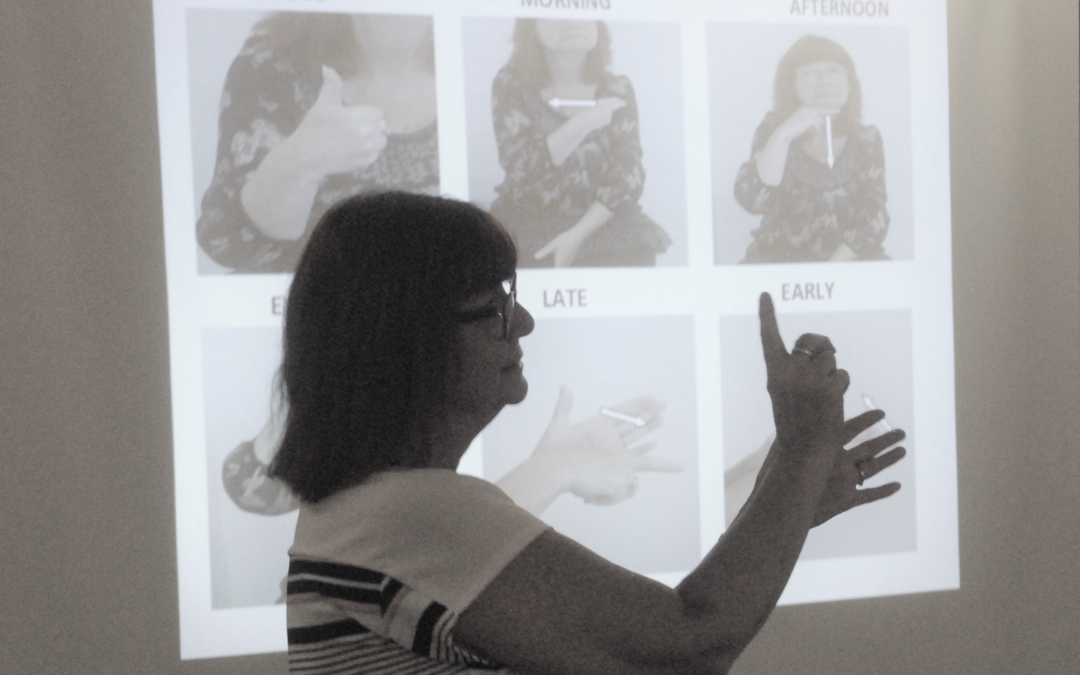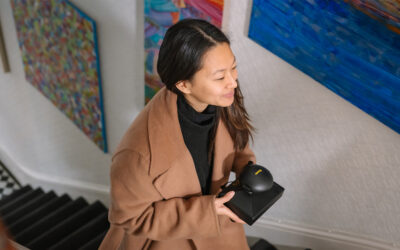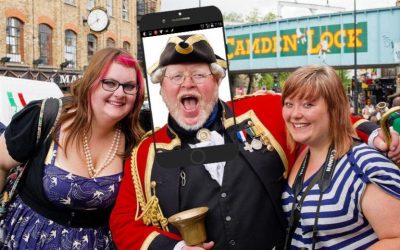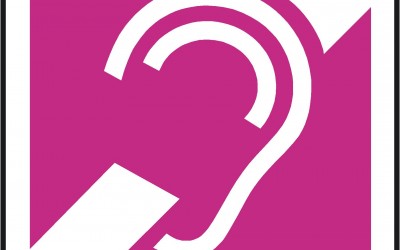We often talk about practical measures for hearing impaired people at seminars and events, in the hopes of giving audiences a sense of good and bad practices. With 11 million deaf and hearing-impaired people in the UK, many are overlooked when it comes to emergency planning. Being an invisible disability, it can be easy to take for granted that, according to statistics, 1 in 6 people could miss a fire alarm.
For several years now, we have supported and recommended Ruthy Fletcher’s award-winning organisation ‘Support the Deaf people’ who specialise in deaf awareness training for hotels and other businesses. For Deaf Awareness Week, we’re shining a spotlight on Ruthy and the important work she’s doing.
Can you tell us more about your business?
I had various office jobs until I was faced with redundancy ten years ago. I decided to set up my own business “Support The Deaf People” following on from some bad experiences staying in hotels. I wanted to educate staff on how to support and communicate with deaf people by providing the right equipment and teaching them relevant sign language.
Can you tell us a bit more about those ‘bad experiences’?
I was staying in a hotel when unbeknown to me the fire alarm went off. I was not alerted to the fire and was the only person left in the building, unaware of what was happening. Unfortunately, I’ve experienced this 3 times in different hotels around the UK. After discussing this with deaf friends, I was astounded as to how many of them had similar experiences.
How prepared do you think businesses are in terms of catering for Deaf people in an emergency?
I think there is a massive communication breakdown! For instance, when I try clothes on in changing rooms – how do the staff know that there is a deaf lady in the changing room when the fire alarm rings out? Deaf people can worry if they feel that there is no one to support or help them. Especially if there are no emergency beacons (flashing lights) or other devices to let us know that the alarm is going off.
What are the most common mistakes hearing people make when dealing with the Deaf community?
Most businesses just aren’t aware of deaf people. They notice more obvious disabilities such as wheelchair users or people with other mobility impairments, even blind people with guide dogs. But Deaf people, who are in good physical health can easily go unnoticed. There is very little support or no BSL (British Sign Language) training. For instance, during one stay in a hotel, I needed to book a taxi to get to a wedding. I asked the receptionist to phone for a taxi but she just froze and shrugged her shoulders. I asked for a paper and pen – she shrugged further. Fortunately, a lady behind me overheard what was happening and gave me a paper and pen. But even after I wrote down “ Please can you phone a taxi to the church as I am going to a wedding at 12.30 pm”, she gave me a phone! “What?” I said, “No, I am deaf, can you phone a taxi for me please!”. It was such an unnecessary effort just to do something as simple as calling a taxi.
What other day-to-day problems do Deaf people face?
There is a long list of problems, really. Most commonly it’s things like doorbells, alarm clocks . . . a lot of the audible signals that hearing people might take for granted, including fire alarms.
So how do you see Support the Deaf People helping businesses?
I aim to educate businesses on how to support and communicate with Deaf people. I teach basic sign language specific to each business, as well as alphabet fingerspelling and lip pattern skills. I also demonstrate equipment used by deaf people, such as Deafgard. It’s been a really important piece of equipment for me so I make sure to show attendees how it works.
I discuss real-life experiences that Deaf people face every day. Very often, attendees are left speechless at some of the awful situations that I, and people like me, have been in. Also, it’s important to remember that Disability Awareness training and Deaf Awareness training are completely different.
The Equality Act 2010 requires businesses to make ‘reasonable adjustments’ for people with disabilities. What is your interpretation of this, in terms of hearing impairments?
I find that the Equality Act 2010 has made a good rule on PEEP (Personal Evacuation Emergency Plan) forms for all businesses. I know that this is standard policy to ask all disabled people to complete these forms, but I want to tell you that many deaf people can be confused by them. They would tick every box, not really knowing what they are for. PEEP forms are obviously written in English, but for many deaf people, this isn’t their first language. Their first language is BSL (British Sign Language). I would simplify the form so that it’s more accessible and easy to read.
There are a lot of problems, but with regards to fire safety, fire alarms and evacuation are a big concern. Most disabled people can still hear and listen to evacuation instructions, but for me and other Deaf people, not only do we worry about missing alarms but also that we won’t be offered engaging evacuation instructions in BSL.
So, is this something you’re looking to change?
Absolutely! I’ve seen a lot of my clients implement real change once I’ve delivered my training. Its been very successful. Basic sign language and communication skills are really easy to pick up and now they have received the deaf-friendly certificate they’re welcoming more deaf customers.
In the fire industry, we know that being able to communicate effectively and having clear evacuation measures are crucial to getting people to respond the way we want them to in an emergency. Maybe you’ve had some visual alert devices fitted in key areas? Maybe your buddy system is ‘first-rate’? Maybe you think you’ve done all you can.
But imagine being able to communicate with Deaf people in their own language. Wouldn’t that make for a more positive experience, as well as showing Deaf and hearing impaired customers that you take their needs seriously?
If you were in an emergency situation, wouldn’t you want someone to communicate in your language?
If you would like to contact Ruthy to arrange some Deaf Awareness Training, you can email ruthy@supportthedeafpeople.co.uk, or you can call and speak to Ruthy’s assistant on 07444 136145.
You might also like
Deafgard: The Alarm for the Deaf and Hard of Hearing
Guest safety is paramount in hospitality. Fireco’s Deafgard ensures deaf and hard of hearing individuals are protected during emergencies. This portable, compliant device offers peace of mind for both guests and hotel operators, enhancing modern safety standards.
Are universities deaf to students’ needs?
In 2016, UCAS registered 507,108 university applicants. Statistically speaking, 1 in 6 of these applicants will have a hearing impairment. That’s a staggering 84,518 students.






I every time spent my half an hour to read this website’s
articles or reviews all the time along with
a mug of coffee.